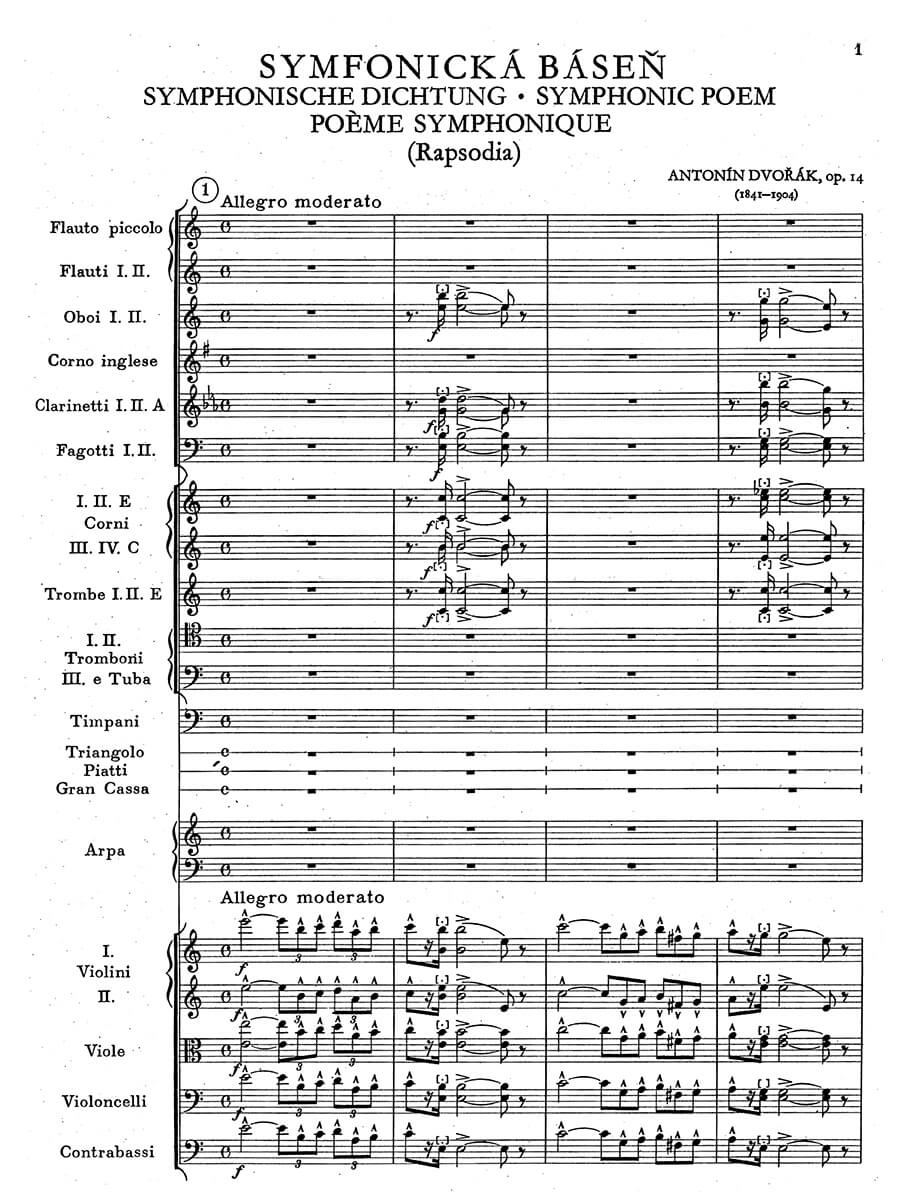Symphonische Dichtung Op. 14
Dvorák, Antonín
30,00 €
Preface
Antonín Dvořák – Symphonische Dichtung Op. 14
(b. Nelahozaves (Mülhausen), 8 September 1841, – d. Prague, 1 May 1904)
Preface
Antonín Dvořák was a nationalist composer from Bohemia (now the Czech Republic) responsible for the composition of over 200 works. Dvořák’s parents discovered his musical talent very soon into his childhood and sent him to Česká Kamenice, a town in Bohemia, so he could study music, specifically violin. In 1857, Dvořák attended the Prague Organ School and graduated in 1859. Dvorák’s first job was playing viola in the Provisional Theatre’s orchestra. The theater was located in Prague and was a temporary home for Czech musical performances. The location was used until a permanent hall was built. Dvořák also taught piano for extra income and was loved by all of his students.
Dvořák began composing in his mid-thirties and by the 1860s, he had a catalog of compositions including four symphonies, two operas, a cello concerto, and several chamber music pieces. In 1873, Dvořák caught the ear of Bohemian nationalists with his cantata, Dédicové bile hory (Heirs of the White Mountains). In 1875, Dvořák entered his third and fourth symphonies into a competition and won via a jury that included Johannes Brahms (1833–1897). This was a breakthrough and marked the beginning of his compositional success. Because of Dvořák’s impact on Brahms, the elder composer recommended him to his publisher, who then commissioned Dvořák’s Slavonic Dances (1878–1886), which were a set of eight folk tunes originally written for piano, then transcribed for orchestra. The Slavonic Dances were performed in 1878 and were an instant hit, thereby popularizing Dvořák’s music across Europe. More commissions followed, including the Moravian Duets (1875–1881) and the Three Slavonic Rhapsodies (1878–1886). In 1882, his opera Dimitrij was premiered and became another popular composition. Dvořák’s music was even successful across the ocean in the United States, and in 1884, he toured across Europe and in America. In 1893, he composed his best-known Symphony, From the New World, more commonly known as The New World Symphony. The Symphony premiered in New York’s Carnegie Hall. The New World Symphony, along with several of his other compositions, was inspired by African American spirituals and Native American music. …
read more / weiterlesen … > HERE
Score Data
| Partitur Nummer | 4893 |
|---|---|
| Edition | Repertoire Explorer |
| Genre | Orchester |
| Seiten | 104 |
| Format | 210 x 297 mm |
| Druck | Reprint |
